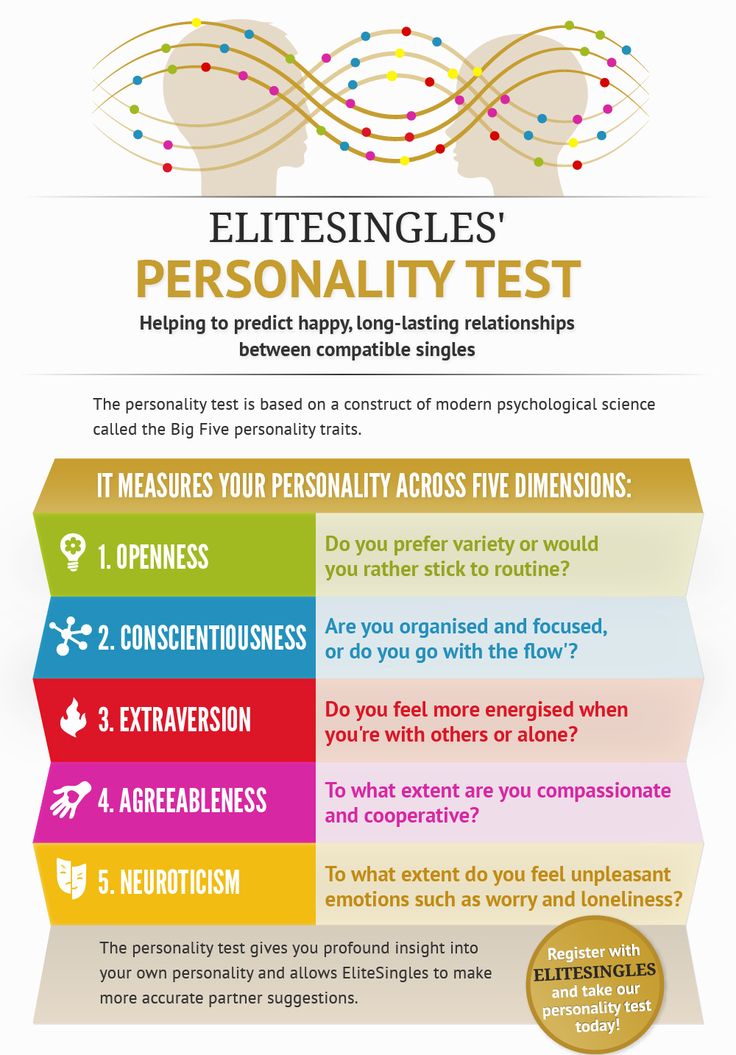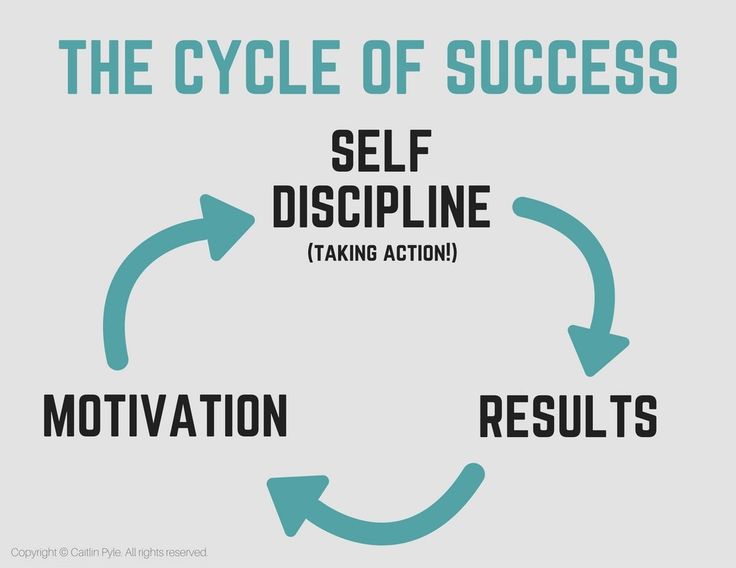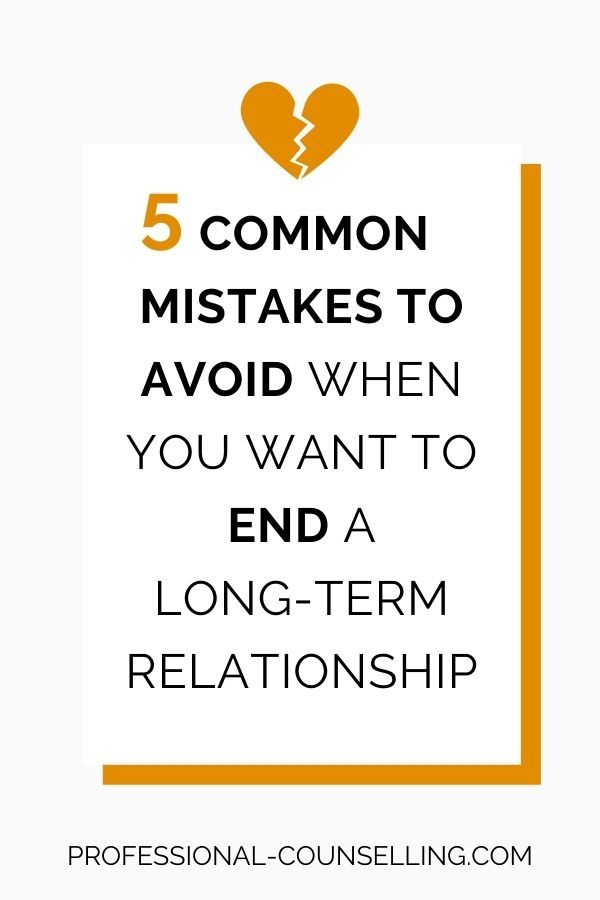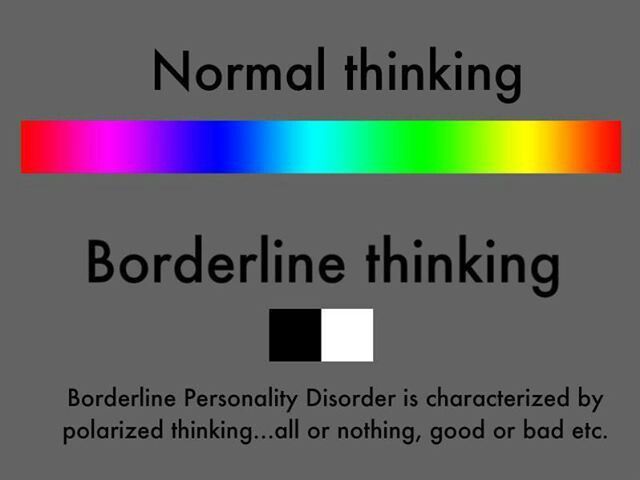How to deal with someone who doesn t respect boundaries
How to Deal with Someone Who Doesn't Respect Personal Boundaries
We all experience at some point in our life people who don’t respect personal boundaries and just leave us feeling not good. Simply put they are toxic. So, how do you deal with someone who doesn’t respect boundaries?
Firstly, there is no quick fix because you can’t make people respect your boundaries. However, what you can do, is know you have a choice with how you can respond to a boundary violation.
Is your personal boundary negotiable?
Some of our boundaries are more important than others but which ones? Get to know which boundaries you consider negotiable and non-negotiable. To be willing to compromise can be a good thing, especially in a new relationship for example, where both people are adjusting. However, this doesn’t entail abandoning your needs to please them.
Time to disengage?
When dealing with someone who doesn’t respect personal boundaries, accept that you can’t control another person’s behavior, so detach yourself instead.
- Don’t participate in unproductive conversations
- Decline invitations that involve spending time with them
- Don’t react to their disrespectful behavior
- Walk away
- Hang up the telephone (politely)
Take care of yourself and be realistic about what you can and can’t do such situations.
Ready to limit contact/No contact?
When someone repeatedly violates your most important boundaries it’s time to ask yourself just how long are you going to continue to accept such treatment. Quite often we accept for too long people disrespecting us, living in the hope that the person will eventually change. Sadly though, in hindsight, we tend to only look back and see the person had no intention of
changing or respecting boundaries.
If someone is hurting you physically or emotionally, putting some distance between you and this person is necessary. Regardless of what others may think or say, you don’t have to continue relationships with anyone who makes you feel not good about yourself.
Family and friends should lift you and support you, not leave you depressed, anxious, angry, or confused.
Remind yourself you’re in charge!
How you approach your personal boundaries is really up to you. Difficult people want you to believe that you’re just over-reacting or being too sensitive. And that’s ok. Let them think that. It doesn’t mean you have to agree with them or allow them to violate your boundaries.
When you have controlling or toxic people in your life, it’s a good idea to examine three areas; TIME, SPACE, and ENERGY and identify which area is most valuable to you and adjust accordingly.
Asking yourself questions is powerful, here are three you can start asking yourself.
1. What time limit do you want to set, what works best for you?
For example, how much time are you willing to spend with them. Whether that be in person or over the telephone.
2. How much of your space are you willing to share?
For example, maybe you have a friend or family member who always turns up unexpected and overstays their welcome.
3. How much mental and emotional energy are you willing to invest?
For example, a friend is going through a difficult time with their partner and constantly in touch and off-loading onto you.
Looking after your emotional wellbeing should always be a priority and boundary setting plays an important in the self-care role.
Time to reach out?
Are you experiencing a difficult/toxic relationship and want support to set, maintain, and enforce your boundaries? Why not check out my new coaching package; Empowering Boundaries for Women or send me an email at [email protected] and ask for a free no-obligation 30-minute consultation call.
- Author
- Recent Posts
Rachel Goss
Coach at Rachel-G
Rachel is a compassionate, caring, and insightful Spiritual Growth Coach. She is passionate about supporting people to step out of suffering and limitation and step into fulfillment. With her support and guidance, you connect to your inner wisdom, unleash your true potential and optimize your emotional well-being. Experience inner freedom and see your life through a different lens. Read about her Creating Healthy Boundaries coaching program.
Experience inner freedom and see your life through a different lens. Read about her Creating Healthy Boundaries coaching program.
Latest posts by Rachel Goss (see all)
How to Deal with People Who Repeatedly Violate Your Boundaries
How to Deal with People Who Repeatedly Violate Your Boundaries- Conditions
- Featured
- Addictions
- Anxiety Disorder
- ADHD
- Bipolar Disorder
- Depression
- PTSD
- Schizophrenia
- Articles
- Adjustment Disorder
- Agoraphobia
- Borderline Personality Disorder
- Childhood ADHD
- Dissociative Identity Disorder
- Narcissistic Personality Disorder
- Narcolepsy
- Oppositional Defiant Disorder
- Panic Attack
- Postpartum Depression
- Schizoaffective Disorder
- Seasonal Affective Disorder
- Sex Addiction
- Specific Phobias
- Teenage Depression
- Trauma
- Featured
- Discover
- Wellness Topics
- Black Mental Health
- Grief
- Emotional Health
- Sex & Relationships
- Trauma
- Understanding Therapy
- Workplace Mental Health
- Original Series
- My Life with OCD
- Caregivers Chronicles
- Empathy at Work
- Sex, Love & All of the Above
- Parent Central
- Mindful Moment
- News & Events
- Mental Health News
- COVID-19
- Live Town Hall: Mental Health in Focus
- Podcasts
- Inside Mental Health
- Inside Schizophrenia
- Inside Bipolar
- Wellness Topics
- Quizzes
- Conditions
- ADHD Symptoms Quiz
- Anxiety Symptoms Quiz
- Autism Quiz: Family & Friends
- Autism Symptoms Quiz
- Bipolar Disorder Quiz
- Borderline Personality Test
- Childhood ADHD Quiz
- Depression Symptoms Quiz
- Eating Disorder Quiz
- Narcissim Symptoms Test
- OCD Symptoms Quiz
- Psychopathy Test
- PTSD Symptoms Quiz
- Schizophrenia Quiz
- Lifestyle
- Attachment Style Quiz
- Career Test
- Do I Need Therapy Quiz?
- Domestic Violence Screening Quiz
- Emotional Type Quiz
- Loneliness Quiz
- Parenting Style Quiz
- Personality Test
- Relationship Quiz
- Stress Test
- What's Your Sleep Like?
- Conditions
- Resources
- Treatment & Support
- Find Support
- Suicide Prevention
- Drugs & Medications
- Find a Therapist
- Treatment & Support
By Sharon Martin, LCSW on July 11, 2016
Unfortunately, people who are manipulative, narcissistic, and have a poor sense of self tend to repeatedly violate personal boundaries. One of the biggest challenges that people have with boundaries is figuring out what to do when someone repeatedly violates them. There isnt a one-size fits all answer to the question.
One of the biggest challenges that people have with boundaries is figuring out what to do when someone repeatedly violates them. There isnt a one-size fits all answer to the question.
- Who is violating your boundaries? The nature, power differential, and closeness of the relationship make a difference. Your response to your mother will be different than your response to your boss, which will be different yet from your response to your neighbor.
- Is the boundary violator willing to change? Is s/he willing to work with you to improve the relationship? Is s/he willing to go to counseling? Is s/he sensitive to your needs or feelings?
- How long has this been going on? Longer behavior patterns are harder to change (but certainly possible when someone is motivated).
- Has the boundary violator been physically aggressive? Safety is paramount. If the person violating your boundaries has been violent or threatened violence, you need to proceed with caution.
 I highly recommend getting help from supportive people, professionals, and/or law enforcement.
I highly recommend getting help from supportive people, professionals, and/or law enforcement.
- Are you a minor? If youre a child, you must ask an adult for help. Reach out to an adult at school or church, a friends parent, or a hotline. You do not need to figure this out alone!
- Are you truly setting clear, consistent boundaries? In my experience, people tend to over-estimate the strength of their boundaries. Its understandable that sometimes you back down, feel tired, overwhelmed, or scared and dont follow through with your boundaries. Just like setting rules with children, boundaries dont work when they are only enforced some of the time. Boundaries need to be especially clear and consistent when youre dealing with someone who doesnt respect you. Such a person is looking for holes in your boundaries and using them against you. So, be sure youre assertively and clearly telling him/her that this behavior is not OK and follow through with consequences.
 See this article for more information.
See this article for more information.
I say these things not to make you feel ashamed or bad about yourself if your boundaries are inconsistent. These are common trouble spots in setting boundaries. My hope is to help you gain more awareness of the things that you can control (namely yourself). Self-awareness is empowering. When you recognize where youre slipping up, you can offer yourself both self-compassion and accountability.
- Continue to set strong, consistent boundaries. I know this is obvious and redundant. However, this is the part that you control. You dont control how people respond and you cant force people to respect your boundaries.
- Write it down. Record the boundary violations and your responses. This will help you check for weak spots in your boundaries. If you notice that you arent consistently setting healthy boundaries, make adjustments. And if you are being very consistent, writing it down will help you decide if you can accept these violations.

- Be clear with yourself about what treatment youll accept and what you wont. People also have a tendency to set a boundary in their mind and then allow it to be pushed back and pushed back. For example, I knew a woman who years prior had told herself that she wouldnt tolerate her husband coming home drunk and cursing at her anymore. By the time I met her, her husband was coming home drunk several times per week, regularly cursing at her in front of their children, and hed slapped her once. This is far beyond what she thought shed put up with. It helps to write down your boundary and/or say it out loud to a supportive person who will help you stay true to it.
- Accept that some people will not respect your boundaries no matter what you do. This is a difficult truth to accept because wed like to be able to force people to respect our boundaries. I know its disappointing to realize that you may have to make a hard decision about whether you want to continue to have a relationship with a person who doesnt respect your boundaries.
 But you cant change someone elses behavior. You can choose to accept it or you can choose to disengage.
But you cant change someone elses behavior. You can choose to accept it or you can choose to disengage.
- Detach from the outcome. One way to detach from a narcissistic person is to stop responding in the same old ways. Some people intentionally violate boundaries to hurt you, get a reaction out of you, and to exert control. Dont engage in the same old arguments with these people. You can choose to ignore or laugh off their comments and not show them that it hurts you. This shifts the power. (This doesnt apply to someone physically harming you.)
- Decide to limit or cut off all contact. If Great Uncle Johnny makes you feel uncomfortable by standing too close and making sexually charged comments, you can decide to not attend family gatherings at his house, or to attend but not be alone with him, or avoid seeing him ever again. You have choices.
- You live with the boundary violator. Lets imagine that youre living with Great Uncle Johnny while you go to school in San Francisco and theres no possible way that you can afford to move out.
 You might identify these choices: Quit school and move back home. Stay out of the house as much as possible (study at the library and coffee shop, come home late and leave early). Ask various friends if you can spend the weekends with them. Get a second job and save money so you can move out. None of these choices seem ideal, but you trust your instincts and do whats best for you.
You might identify these choices: Quit school and move back home. Stay out of the house as much as possible (study at the library and coffee shop, come home late and leave early). Ask various friends if you can spend the weekends with them. Get a second job and save money so you can move out. None of these choices seem ideal, but you trust your instincts and do whats best for you.
- The boundary violator is in a position of authority. This is perhaps the hardest situation of all. It can be scary and dangerous when a parent, teacher, boss, law enforcement officer or anyone in authority is violating your boundaries. Please consider whether it would help to get someone else involved (perhaps this persons superior). I realize that life is complicated and sometimes doing so can make things worse particularly in the short-term. You, again, need to make some difficult decisions about whether you can stay away from this person, limit contact, or avoid being alone with him/her.
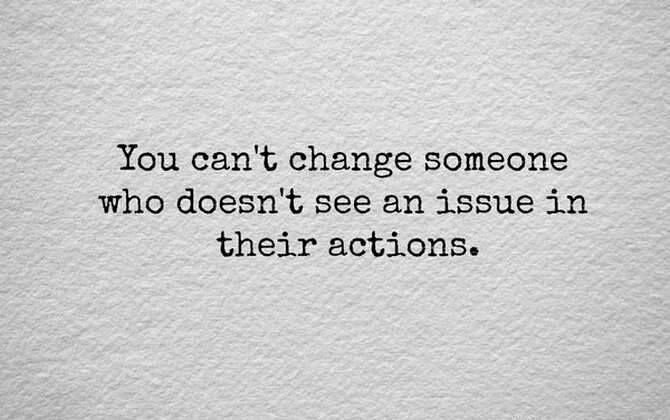
- Others pressure you to stay or minimize your feelings or the harm youve experienced. When you decide that you need to make changes to a relationship due to boundary violations, not everyone will be supportive. This is not the time to be a people-pleaser. Its not healthy to stay in contact with someone who causes you harm in order to make someone else happy. Dont continue living at Great Uncle Johnnys because your Dad says youre over-reacting and thats just how Johnny is. Maybe your Dad has a perfectly respectful and pleasant relationship with Uncle Johnny. Or maybe hes oblivious to how Uncle Johnny treats you. There are infinite reasons for your Dad to say this. The point is, it doesnt matter. You are uncomfortable and you need to honor that.
- You love and care about the boundary violator. Often the boundary violator is a parent or spouse or someone else you care about. Obviously, its much easier to detach or walk away from someone you dont love deeply.
 Its actually not healthy to love anyone else more than you love yourself. Setting boundaries is a form of self-love and self-respect. If you dont love and respect yourself, others wont either. You can ask your loved one to engage in a process of change with you such as family counseling, going to a support group, or reading a book about boundaries. If they refuse or dont follow through, theyre telling you they dont intend on changing. You are once again faced with needing to decide if its healthy for you to continue the relationship as is or with modifications. I had a client who loved his aging mother, but she was verbally abusive and intrusive with her questions. She criticized everything her son did to help her. He couldnt bear to cut her out of his life, but he was miserable before, during, and after each visit. His way of dealing was to hire someone to help with her day to daycare and limit his visits to once a week. Whenever his mother began to criticize, he told her she was being critical and hurtful and cut the visit short.
Its actually not healthy to love anyone else more than you love yourself. Setting boundaries is a form of self-love and self-respect. If you dont love and respect yourself, others wont either. You can ask your loved one to engage in a process of change with you such as family counseling, going to a support group, or reading a book about boundaries. If they refuse or dont follow through, theyre telling you they dont intend on changing. You are once again faced with needing to decide if its healthy for you to continue the relationship as is or with modifications. I had a client who loved his aging mother, but she was verbally abusive and intrusive with her questions. She criticized everything her son did to help her. He couldnt bear to cut her out of his life, but he was miserable before, during, and after each visit. His way of dealing was to hire someone to help with her day to daycare and limit his visits to once a week. Whenever his mother began to criticize, he told her she was being critical and hurtful and cut the visit short. This was the best solution he could come up with.
This was the best solution he could come up with.
Dealing with someone who repeatedly violates your boundaries is about identifying your choices, choosing the best option (none may be ideal), respecting yourself, and trusting your instincts. Unfortunately, there is no easy answer. Setting boundaries sometimes means others will be angry or offended by your choices and sometimes you cannot continue to have them in your life.
*****
Join the conversationon myFacebook pageandInstagramas we inspire, educate, and help each other heal.
Image: Jeffreyat Flickrr 2016 Sharon Martin, LCSW. All rights reserved.
FEEDBACK:
By Sharon Martin, LCSW on July 11, 2016
Read this next
10 Exercises to Heal Your Inner Child
Medically reviewed by Joslyn Jelinek, LCSW
Inner child exercises can help you parent and nurture your inner child, offering them the comfort they need. We look at 10 exercises you can try today.

READ MORE
10 Effective Ways to Keep Your Partner Interested
Medically reviewed by Janet Brito, PhD, LCSW, CST
Relationships can be difficult, but strategies, such as practicing attentive listening, are available to help you strengthen your relationship. You're…
READ MORE
The Importance of Play for Adults
Medically reviewed by Danielle Wade, LCSW
Playing is just as important for adults, with physical, mental, and stress-busting effects. We look at types of play in adults and their benefits.
READ MORE
Tips for Living With A Narcissist and Splitting Housework
Narcissists can make splitting housework stressful. Here's how to protect yourself.
READ MORE
4 Examples of Boundaries with an Ex
Medically reviewed by Janet Brito, PhD, LCSW, CST
Boundaries can be difficult to set and maintain, especially if you have unresolved feelings.
 But you can learn ways to protect yourself after a…
But you can learn ways to protect yourself after a…READ MORE
Narcissism: Delusion, Fantasy, or Excessive Confidence?
Medically reviewed by Karin Gepp, PsyD
Are delusions or psychosis a part of a narcissistic personality? Here's what the experts say and how to spot a narcissist.
READ MORE
11 Personality Masks We Wear
Personality masks are typcially used as a self-defense mechanism. Understanding what causes you to wear a mask around others may help you cope.
READ MORE
Ostracized from Group? It May be Bullying by Social Exclusion
Medically reviewed by Danielle Wade, LCSW
Intentionally leaving someone out of a group is called ostracizing or social exclusion. It can be a form of bullying.
READ MORE
Approval-Seeking Behavior: Signs, Causes, and How to Heal
When relationships get messy individuals part ways, some struggle with letting go.
 Why does this happen? In me
Why does this happen? In meREAD MORE
How to Respect Other People’s Boundaries
Medically reviewed by Jennifer Litner, LMFT, CST
Boundaries help us stand up for what's important to us. Learn how respecting boundaries can help you build healthy relationships and bonds with others.
READ MORE
I'm in the house: how to set boundaries correctly
Personal boundaries are a line that runs between individuals, the people around them and larger social systems. They are needed so that we can clearly feel: where I am, and where I am not; where are my own emotions, actions, beliefs and thoughts, and where are others. And if these emotions and thoughts are mine, then I am responsible for them and control them. Borders also protect our inner world from outside encroachment.
They may look like a five-meter stone fence with barbed wire and machine gunners on the towers. Or they may be absent altogether - all the doors will be wide open. Boundaries can change depending on the context and environment, become solid for some people and completely blurred for others.
Or they may be absent altogether - all the doors will be wide open. Boundaries can change depending on the context and environment, become solid for some people and completely blurred for others.
Personal boundaries can be opened for "import", when we gladly accept other people's help, resources, time, money, etc., or for "export" - our own resources. We usually import what we especially need, and we export either what we have in abundance, or what we hope to get a good price for.
Borders are needed to mark two important questions:
1. What do I consider my property (and, accordingly, I will protect)?
2. What am I responsible for (and will try to control)?
Boundary checking
How does this manifest itself in specific behavior? There are people for whom property boundaries can be very arbitrary.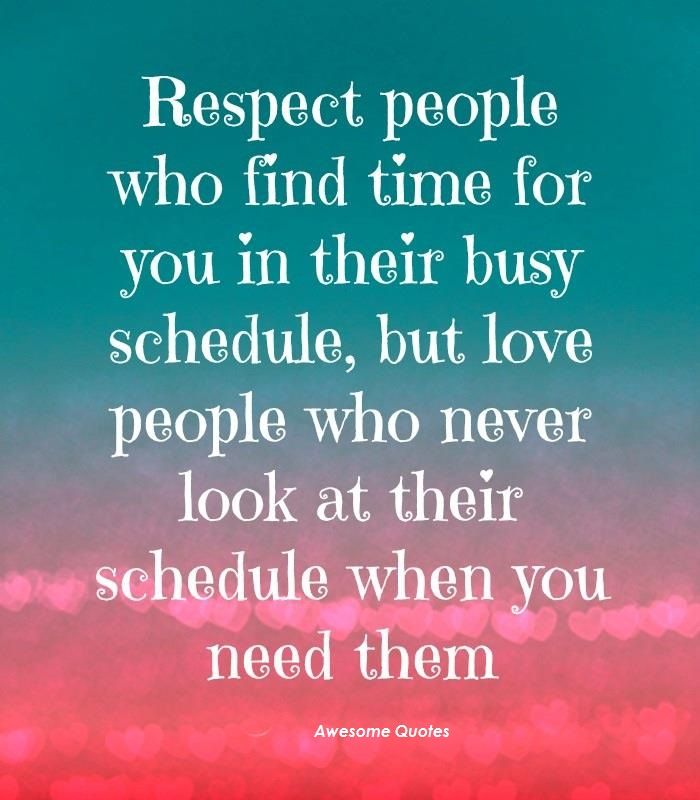 Such a person does not consider anything his own, inviolable, he "does not become attached to things." He cannot close himself in his room because he considers it impolite. Such people cannot refuse help or money, even realizing that this money will not come back. Their borders are always open for imports, it is important for them that people see them as kind, generous and open. It's a way to build relationships. Sometimes they even think that having nothing of their own is safer.
Such a person does not consider anything his own, inviolable, he "does not become attached to things." He cannot close himself in his room because he considers it impolite. Such people cannot refuse help or money, even realizing that this money will not come back. Their borders are always open for imports, it is important for them that people see them as kind, generous and open. It's a way to build relationships. Sometimes they even think that having nothing of their own is safer.
The opposite type is people whose boundaries are too wide. They consider everything their property - wife, children, employees, office or apartment space, other people's things and time. They do not see other people's boundaries and do not consider it necessary to observe them. Wherever such a person is, there is always “too much” of him, he captures the space around him. And if he was not given something in a good way, he can take it away "in a bad way."
Two "extreme" types also exist in relation to responsibility. There are people who take on too much, trying to control what is beyond their control. Such a wife thinks that her husband yelled at her because she did not have time to set the table on time or did not clean up well enough. People agree with every charge brought against them. The logic is this: if I tried better (guessed other people's desires and did everything right), then this would magically change those around me, make them happy and loving. People with such a strategy of thinking lack recognition and praise, they are ready to do everything to get this simple currency.
There are people who take on too much, trying to control what is beyond their control. Such a wife thinks that her husband yelled at her because she did not have time to set the table on time or did not clean up well enough. People agree with every charge brought against them. The logic is this: if I tried better (guessed other people's desires and did everything right), then this would magically change those around me, make them happy and loving. People with such a strategy of thinking lack recognition and praise, they are ready to do everything to get this simple currency.
The other extreme is characters who are not ready to take responsibility not only for others, but also for themselves. They do not see their contribution to the development of conflict situations, do not accept criticism and try to avoid any obligations. If you entrust them with a project, they will either require a partner or will come running every half hour with questions and clarifications so that the responsibility does not lie with them (or at least not with them alone). Men with a fear of responsibility are almost elusive for marital or paternal obligations. They consider them a violation of their boundaries, because the family will force them to change their usual way of life.
Men with a fear of responsibility are almost elusive for marital or paternal obligations. They consider them a violation of their boundaries, because the family will force them to change their usual way of life.
Border Guard Day
How to define your borders and protect them? Unfortunately, you cannot put up pegs and notify others that “this half a meter of land around me is my territory, do not enter without knocking.” Although, in fact, this is exactly what young ladies with long puffy skirts did in the old days.
In my trainings I often do a simple exercise. I ask a person to designate a limit invisible to others, and I begin to slowly approach it - step by step. The task of the participant is to make it clear without words that I am already close to the point that I do not need to cross. The reaction is very different. Someone is very calm at first and only at the last moment begins to frown. Someone, on the contrary, from my first step “gets into a pose” and puts on “boxing gloves”. Very polite people let me close, with a bewildered smile on their face. And only then it turns out that I have long passed the intended border. There was also such an “intelligent” reaction: when a person understands that I am not going to stop and provoke him to more obvious actions, he himself takes a step back, leaving his integrity stable. But in order to stay at a safe distance from me, he has to give up his territory.
Someone, on the contrary, from my first step “gets into a pose” and puts on “boxing gloves”. Very polite people let me close, with a bewildered smile on their face. And only then it turns out that I have long passed the intended border. There was also such an “intelligent” reaction: when a person understands that I am not going to stop and provoke him to more obvious actions, he himself takes a step back, leaving his integrity stable. But in order to stay at a safe distance from me, he has to give up his territory.
I don't know how you would react in this exercise. Think about it.
You can defend your borders in different ways in different situations. The ability to say "no" (without the subsequent sprinkling of ashes on the head!) Is an important personality skill. It is necessary for those who easily succumb to pressure, aggression and other "honest ways of taking money."
The ability to create and protect one's own boundaries, of course, is formed even by parents. But over the course of life (and with different people), boundaries can change many times. Teenagers, for example, protect them militantly, they need this life period in order to separate from their parents and learn to build their own lives on their own, to respect themselves. And couples in love sometimes completely dissolve in each other, and only then they begin to notice that it has become crowded. If you do not revise the rules of interaction in time, do not outline the circle of your interests, then the couple comes to a crisis or even breaks up.
But over the course of life (and with different people), boundaries can change many times. Teenagers, for example, protect them militantly, they need this life period in order to separate from their parents and learn to build their own lives on their own, to respect themselves. And couples in love sometimes completely dissolve in each other, and only then they begin to notice that it has become crowded. If you do not revise the rules of interaction in time, do not outline the circle of your interests, then the couple comes to a crisis or even breaks up.
Like any other skill, the ability to see and respect one's own and others' boundaries may well be mastered at a later period of time.
How to defend your territory
How do you react to a yelling boss? Do you get nervous before public speaking? Are you able to refuse requests from loved ones if they are inconvenient for you? Do children have the right to disagree with you, to close in their room? How do you feel when your spouse (or best friend) said something “wrong”? Do you want to suggest, correct, give a cuff, shame, do you think that the actions of loved ones “dishonor your reputation”?
The skill of respecting other people's boundaries is, first of all, allowing other people to be different from you. A good aphorism caught my eye recently: “Selfishness is not when you do what you want. This is when you are sure that others should do what YOU want. When you want to "do good" to someone - that is, to help, give advice, stand up for someone, correct the situation - pause and look around. Does this violate someone's interests, does it plunge your counterpart into a position of helplessness and dependence? Have you been asked for this help? Does the person really need this kind of help?
The main feature of "healthy" boundaries is their flexibility.
If you know how to move away from situations that are dangerous or unpleasant for you (if not physically, then at least emotionally!),
If you can, depending on the situation, open up to "import" and "export" of resources, adequately use the words “yes” and “no”,
if you find it comfortable and safe to get close to the people you choose,
if you are able to consider both your own interests and the interests of others,
then your relationships with people become much more simple, honest and pleasant.
12 characteristics of people who violate other people's boundaries
36,932
A person among people Knowing yourself
Developing and maintaining relationships is one of the most difficult tasks. Relationships always turn out to be more complicated than we would like. They are complicated by a variety of factors: emotional, behavioral, social, psychological and even genetic.
If you have an unhealthy relationship with a person who is emotionally unstable or uses psychological abuse, the only way out is to stop communicating. Here are a few characteristics of people who tend to violate boundaries.
1. They rush, creating the illusion of urgency
A favorite technique of manipulators is to suggest that something urgently needs to be done or decided. Shops also use this method, trying to get us to buy something without thinking about the decision. The goal is to speed up the selection process and provoke impulsive, thoughtless actions.
2. Surrounded by attention
They seem to think about you all the time, but that shouldn't be flattering. This only happens because you are useful to them in some way. You are not appreciated, not respected, but simply used. I once counseled a young woman whose neighbor constantly left her notes of best wishes, cleared snow from her yard, gave her a ride to school, and even cooked her lunch. It was very kind of her, but one day she asked if my client could help her care for her dying mother. She replied that, unfortunately, she could not, and named objective reasons, after which the attitude towards her deteriorated sharply.
3. Don't think about your feelings
Selfish people who use you don't think about your interests. They constantly try to confuse, forcing them to doubt their perception of reality and adequacy. Often they ignore all your attempts to reach them, refuse to answer questions and talk, trying to control you. Such behavior is a form of psychological abuse.
4. They care little about your health and safety
These people don't think about whether their behavior is harming you. For example, a colleague may ask you to lie to your boss to get him out of harm's way, knowing that lying could cost you your job. A relative may ask you to support him in a conflict, while he is not embarrassed that you yourself can suffer.
5. They try to involve you in their business
They are incapable of doing their business without involving you. A few years ago I was contacted by one of the directors of a law firm who had worked there for 25 years. He could not understand why a powerful colleague would not leave him alone, although he had made it clear that he did not want to work with him on a client's case. Moreover, the colleague began to behave aggressively, spoke impartially about my client in front of other colleagues. Once said "no" led to psychological abuse that lasted for years.
6. Does not respect the need for privacy
You have every right to privacy and privacy. Stay away from those who are unable to understand it. The fact that they do not respect the two most important human needs says a lot about their value system.
Stay away from those who are unable to understand it. The fact that they do not respect the two most important human needs says a lot about their value system.
7. They gradually wear you down
Often such people act quite subtly, from time to time reminding them of what they need until you give up. They say and do the same things, gradually loosening your boundaries and getting on your nerves. If starvation fails, coercion, intimidation, and fraud are used.
8. They think that everything is allowed to them
It is extremely difficult to get along and communicate with someone who believes that everything is allowed to him and everything around him owes something to him. He is incapable of speaking with others on an equal footing. You will constantly have the feeling that you are being used, belittled. It is important to make it clear that you will not tolerate this kind of attitude.
9. Constant checks on you
Often they refuse to discuss anything with you, do not want to maintain honest and equal relations, ignore your needs in favor of their own.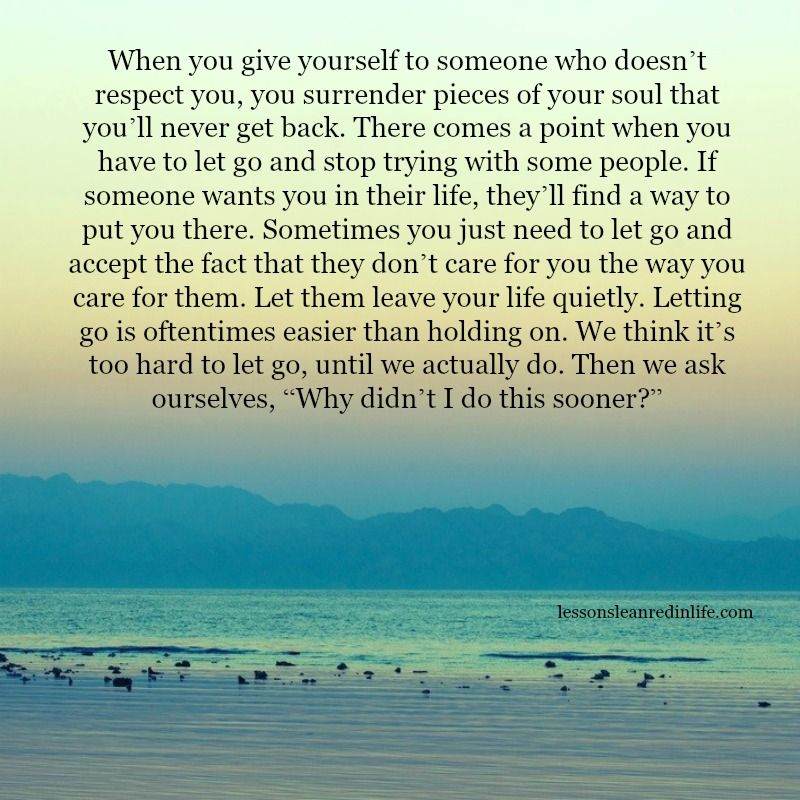 Checking can take the form of manipulation: the egoist wants to understand how far you will allow him to go. This will repeat.
Checking can take the form of manipulation: the egoist wants to understand how far you will allow him to go. This will repeat.
10. They plot behind your back
They try to control you and always be aware of the details of your life, without revealing anything about theirs.
11. They seem to suffer from a split personality
Everyone has good and bad days, we change with age, facing new difficulties and gaining experience. But communicating with someone who constantly changes attitudes and behaviors is difficult. Instability often leads to the violation of foreign borders.
Often from the outside it seems that such people themselves do not understand what they want, are not sure of their own decisions, and doubt their emotions. Perhaps this is so, but they still manipulate you, forcing you to be on your guard all the time, because you do not know what to expect from them.
12. Engage in emotional and psychological manipulation
When such a person fails to get something from you, emotional manipulation is used.




